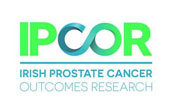
Associate Professor David Galvin
Consultant Urologist, Mater Misericordiae and St Vincent’s University hospitals, University College Dublin. Principal Investigator IPCOR and PRAISE-U

Mr Martin Sweeney
Prostate cancer patient and Patient Advocate
Support groups play a critical role for prostate cancer patients dealing with sexual function challenges post-surgery or radiation therapy, as emphasised by clinicians and patient advocates.
Surgery or radiation therapy can have a lifelong impact on urinary, bowel and sexual function, but clinicians and patient advocates stress that there is support available to help men address this and improve their quality of life after having prostate cancer.
Prostate study on sexual impact
In Ireland, the Irish Prostate Cancer Outcomes Research Programme (IPCOR), funded by Movember, assessed the quality of life impact on men with prostate cancer. It compiled a database of nearly 900 men from 16 hospitals, gathering information on the effects of diagnosis and treatment on sexual, urinary and bowel function.
Principal investigator David Galvin says the study found that less than 10% encountered difficulties with urinary or bowel function, but men reported a massive impact on sexual function.
Professor Galvin, Consultant Urologist and Associate Professor at Mater Misericordiae and St Vincent’s University hospitals, University College Dublin, says: “When a man cannot perform sexually, it has negative consequences on every aspect of his life and his relationships, confidence and self-esteem. It can impact on his state of mind as well.”
Support groups in recovery process
Professor Galvin underlines the importance of support groups in helping men and their partners adjust to the changes. “It is about making sure men have access to that support — and having it delivered at a timely point in their recovery and in a manner in which they would find appropriate and helpful,” he adds.
“This is not only for them but also their partner, whether they are heterosexual or homosexual couples, to help men enjoy intimacy and sex in ways that can be fulfilling.”
He says there needs to be consistency of advice, support and education of healthcare staff in the sexual function area.
Movember — a charity focusing on prostate cancer, testicular cancer, mental health and suicide prevention — has produced Clinical Guidelines for Sexual Health and Prostate Cancer. This evidence-based framework aids clinicians in assessing and managing sexual side effects of prostate cancer therapies — fostering shared decision-making among clinicians, patients and partners.
There needs to be consistency of
Associate Professor David Galvin
advice, support and education of
healthcare staff in the sexual function area.
Patient advocate: post-treatment challenges
Prostate cancer patient advocate Martin Sweeney was 49 when he was diagnosed in 2015.
He warns that failure to appropriately address the issues men face after having treatment can affect mental health. External support is valuable, but he cites concern about insufficient professionally trained support in Ireland outside the treatment pathway.
He adds: “Prostate cancer treatment is very invasive and can leave patients with lifelong residual issues. With sexual function, it is important men can explore ways of having intimate time with their partner.”
Support groups and the topic of quality of life and sexual recovery should be integral and central to the care pathways, insists Sweeney. “However, not every health professional is aware of the need to bring these issues up. Normalising the narrative is the most important thing, and men should understand that they should not suffer in silence.”
Treatment options and further research
Sweeney points to treatments such as Viagra and similar medication, penile injections or implants to improve sexual function as well as peer support and counselling. He also underlines the role of spouses and partners in the process.
IPCOR2, funded by Movember, is about to begin with patient partners included in the study process. Further research will see a biobank established to look for new targets to treat prostate cancer.
Professor Galvin is also working on a pilot prostate screening project for Ireland — similar to bowel, breast and cervical screening programmes — while additional advice is available through ARC Cancer Support Centres.



